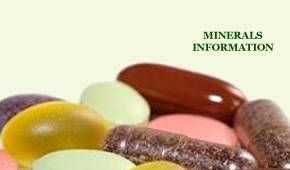ASTRAGALUS
 Information of Astragalus
Information of Astragalus
Astragalus membranaceus, also known as Milk Vetch Root is part of the Leguminosae plant family.Astragalus is a native of northern and eastern China and Mongolia.
General Information
Botanical Name: Astragalus membranaceus, Astragalus membranaceus var. mongholicus
Common Name: Milk Vetch Root, Huang Qi (Mandarin)
Plant Family: Leguminosae (It is a relative of Licorice and the pea plant)
History: Astragalus has been used in Chinese Medicine for more than 2,000 years.
Plant Constituents of Astragalus
Contains:
Triterpenoid saponins
-Acetylastragalosides
-Astragalosides I - VIII
-Astragenol
Amino Acids
-GABA
-l-canavanine
and
-flavonoids
-isoflavonoids
-polysaccharides
-plant sterols
-volatile oil
-selenium
Action:
-antioxidant [contributing to the oxidation of free radicals which are believed to contribute to premature aging and dementia]
-cardiotonic [an agent that tones, strengthens and invigorates the heart giving a feeling of well-being]
-diuretic [an agent that increases the volume and flow of urine which cleanses the urinary system]
-hypotensive [an agent that lowers blood pressure]
-immunostimulant [an agent that stimulates the immune system]
-tonic [an agent that tones, strengthens and invigorates organs or the entire organism giving a feeling of well-being]
Usage of Astragalus
According to Traditional Chinese Medicine Astragalus is used to balance the vital energy, qi, which flows through all beings.
Medicinal Part used: Root
Astragalus is commonly used for:
Bacterial or Viral Conditions
-Candida
-chronic bacterial infections, especially if combined with debility and spontaneous sweating
-Chronic Fatigue Syndrome
-chronic hepatitis
-chronic viral infections, especially if combined with debility and spontaneous sweating, e.g. AIDS
-prevention and treatment of the common cold
Cardiovascular System Conditions
-congestive heart failure
-high blood pressure
-lowers blood pressure
-relieves symptoms and improves heart function in severe forms of heart disease
Blood Conditions
-anemia
Female Conditions
-prolapsed uterus
-uterine bleeding
Gastrointestinal Conditions
-general digestive disorders including
-bloating
-diarrhea
-gas (flatulence)
-peptic ulcers
-stomach ulcers
-strengthens digestion
Genitourinary Conditions
-nephritis
-promotes the secretion of urine
Immune Conditions
-aids in strengthening the immune system
-chronic autoimmune diseases
-chronic impaired immunity
-fortifies battered immune systems of people undergoing cancer chemotherapy or radiation
-gives the immune system a powerful boost
-helps the body to fight off viral and bacterial infections responsible for causing colds, flu, bronchitis and sinus infections
-immune enhancing properties, especially in chronic hepatitis
-multiple allergies
-persistent infection
-prevention of infection
-speeds recovery and extends life expectancy for people whose immune systems have been compromised by chemotherapy or radiation
Metabolic Conditions
-raises metabolism
-strengthens metabolismratory Conditions
-chronic phlegm production
-shortness of breath
Other Conditions
-builds stamina
-fatigue or lack of appetite associated with chemotherapy treatment
-fever
-heals wounds and injuries
-helps to counteract cell damage caused by unstable oxygen molecules called -free radicals
-improves overall health
-increases endurance
-night sweats
-organ prolapsus
-promotes healing and tissue regeneratio
-raises vitality
-stops debilitating sweating
Other Uses
-often cooked with broths, rice, or beans to boost the healing energies during illnesses that prevent one from eating normally
Dosage:
Recommended dosage is as follows:
Children (1/3 of adult dosage)
Astragalus may be used on occasion to support a child's immune system and should only be taken once daily for up to one month. The dose should be determined by adjusting the recommended adult dose to account for the child's weight. Most herbal dosages for adults are calculated on the basis of a 150 lb (70 kg) adult. Therefore, if the child weighs 50 lb (20 to 25 kg), the appropriate dose of astragalus for this child would be This dose
Adult
-3-6g/day dried root to half liter water usually taken as a decoction (boiled)
-3-5mL three/day 1:2 fluid extract
Precautions
Caution:
-The body can develop a tolerance to immune stimulating herbs such as Astragalus if it is taken for long periods
-Alternate the use of Astragalus with other immune boosting herbs such as Echinacea, Cat’s Claw, and Pau D’arco
-Astragalus is not advisable in acute infections
Consult your doctor before using Astragalus
-If cancer treatment is being undertaken
-If you are pregnant or breastfeeding
-If a child has a feve
Drug Interactions:
Do not use Astragalus without first talking to your practitioner or healthcare provider if you taking any of the following medications:
Antiviral medications (Astragalus may increase effects) such as:
-acyclovir
-interferon
Immune System Suppressants (Astragalus may counteract immune suppressing effects) such as:
-Cyclophosphamide (used by transplant recipients to reduce the chances of rejection)
[AD]











